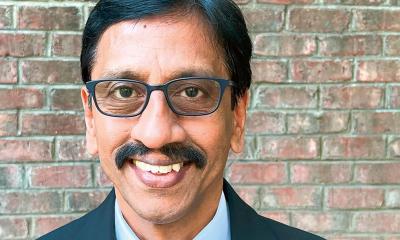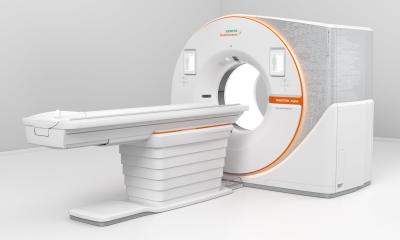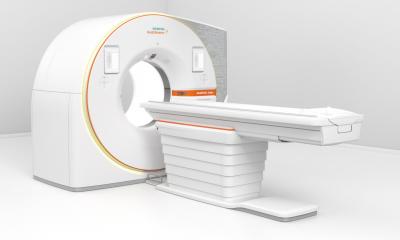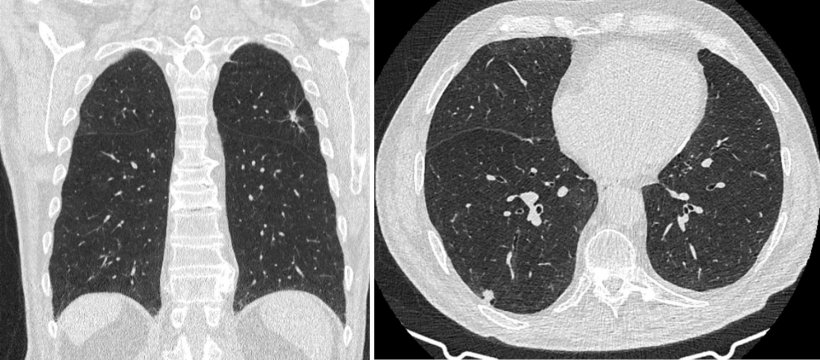
Article • The ‘new normal’ after Covid-19
Lung cancer screening: The slow return of mobile units
The coronavirus pandemic has had a severe impact on healthcare services but one area where that has been felt particularly deeply is with lung cancer screening. With sessions cancelled, treatment delays and social-distancing and safety requirements, many patients have been affected.
Report: Mark Nicholls
However, as services begin to pick up again and lung cancer screening returns, three experts closely associated with the field offered their insights into what the future may hold under the ‘new normal’ for screening in the UK.

Ahead of the British Institute of Radiology’s lung cancer imaging event, the three experts participated in a pre-session presentation and live Q&A entitled ‘Relaunching a lung cancer screening service in the new normal’. Professor Richard Booton, Consultant Respiratory Physician in the North West Lung Centre and Clinical Director for Lung Cancer and Thoracic Surgery at Wythenshawe Hospital in Manchester, offered a clinician’s insight into how lung screening has changed post-Covid. There were challenges in relaunching services within a community, he said, but, with reassurance to participants, the uptake remained high, though he acknowledged that the Covid-19 has impacted beyond community settings and into hospitals.
‘In the diagnostic arena, the impact of Covid reduces our capacity, not least in CT scanning, lung function, bronchoscopy, CT-guided lung biopsies and PET scanning, and this is all a consequence of social distancing and requirement for Covid testing,’ he added. ‘In treatment terms having patients isolate, added time for donning PPE, reduced operating time, theatre access and anaesthetic availability, all have an impact. This creates an enormous propensity for delay, which was common pre-Covid and is going to continue to be common, if not exacerbated.’
Lack of screening infrastructure
Delay in lung cancer care is not new but there is no doubt Covid will further compromise and slow care as capacity becomes a real problem
Richard Booton
He pointed to a lack of screening infrastructure, the inability to get people quickly through the MDT (multi-disciplinary team) process and into treatment, and the UK’s ‘woeful’ lack of CT capacity, as ongoing issues. Compliance to the 62-day target from urgent general practitioner (GP) referral to treatment continues to fall and he suspected that would get worse in the months ahead.
Booton said the pandemic had provided some ‘illumination’ on the difficult cancer screening landscape and highlighted the need to invest in workforce, diagnostics, to roll out faster pathways, and see more joined up collaboration in the UK’s cancer alliances, as well as some centralisation in delivering complex pathways. ‘Delay in lung cancer care,’ he said, in conclusion, ‘is not new but there is no doubt Covid will further compromise and slow care as capacity becomes a real problem. We need to fight for that capacity now as we enter the recovery phase – both within our hospitals and across our cancer alliances.’
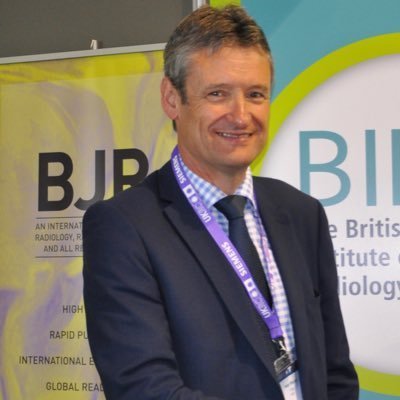
The session also heard from Peter Sharpe, CEO of Cobalt Health – a charitable organisation which offers mobile lung cancer screening services – on the challenges of relaunching the service post-lockdown. In Manchester, during the year prior to lockdown in March, the organisation’s mobile scanning units conducted 8,972 lung health checks (LHCs), including 4,555 low dose CT scans, found 88 lung cancers. But in March, the programmes were paused and the charity’s scanners went to support NHS England (NHSE) Covid-19 response by providing urgent oncology scans for hospitals across England.
Now, with the relaunch of the programme, the challenges are in maintaining social distancing, use of PPE, cleaning the equipment and also returning to previous locations, which were often in supermarket car parks, combined with a continuing high demand for CT across England.
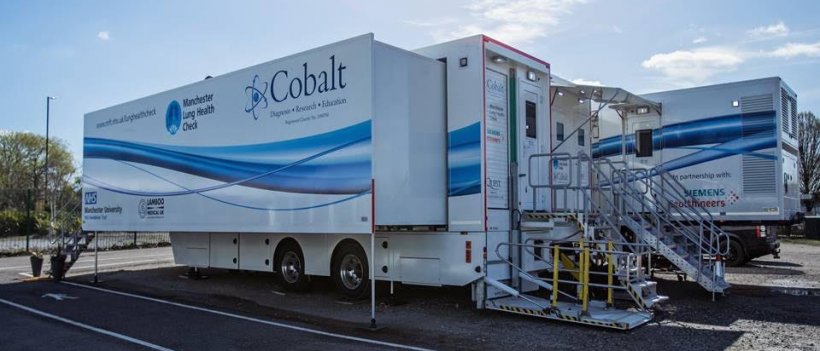
Mobile scans on a supermarket car park
Some of the scan preparation processes, such as risk assessments, are being carried out by phone or video call and patients are invited to attend for mobile scans alone and scan-ready in their dress. Spirometry and blood pressure checks remain suspended. The scanners have enough space within to maintain social distancing, but supermarkets have been reluctant to allow the units back on their sites, though a unit has been situated at Manchester City’s Etihad football stadium. Scheduled attendance has been lower to facilitate social distancing and there have been some same-day cancellations by patients who are nervous about venturing out as many have been shielding. But those willing to attend the mobile unit have been well-prepared and often feel more comfortable in a mobile screening setting than attending hospital. ‘It is early days, but we still believe lung health checks will be an effective programme for lung cancer screening,’ said Sharpe.
AI in lung cancer screening
Hasan Jouni, Business Development Manager, Siemens Healthineers, addressed the session about the role Artificial Intelligence has to play with some of the challenges faced in lung cancer screening, detailing how the AI-Rad Companion product chest CT and chest X-ray modules can help. He said they could be utilised to address backlogs in scan reporting and, while not providing a substitute for the radiologist, could help with routine, labour intensive, aspects of the workload by making in-roads into delays in reporting and improve turnaround time.
Recommended article
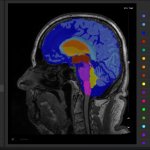
News • Rad Companion
Siemens expands AI portfolio in clinical decision-making
The AI-Rad Companion family supports radiologists, radiation oncologists, radiotherapists and medical physicists through automated post processing of MRI, CT and X-ray datasets. It saves the clinicians' time and helps them to increase their diagnostic precision.
Profile:
Richard Booton is Consultant Respiratory Physician in the North West Lung Centre and Clinical Director for Lung Cancer & Thoracic Surgery at Wythenshawe Hospital in Manchester. He is also the Programme Director for the Manchester Lung Health Check Programme. His research interests include clinical care in thoracic oncology, advanced bronchoscopy and lung cancer screening. He is a member of the NHSE National Delivery Group for Targeted Lung Health Checks, and past member of the NHSE Expert Advisory Group on Lung Cancer Screening.
29.11.2020



